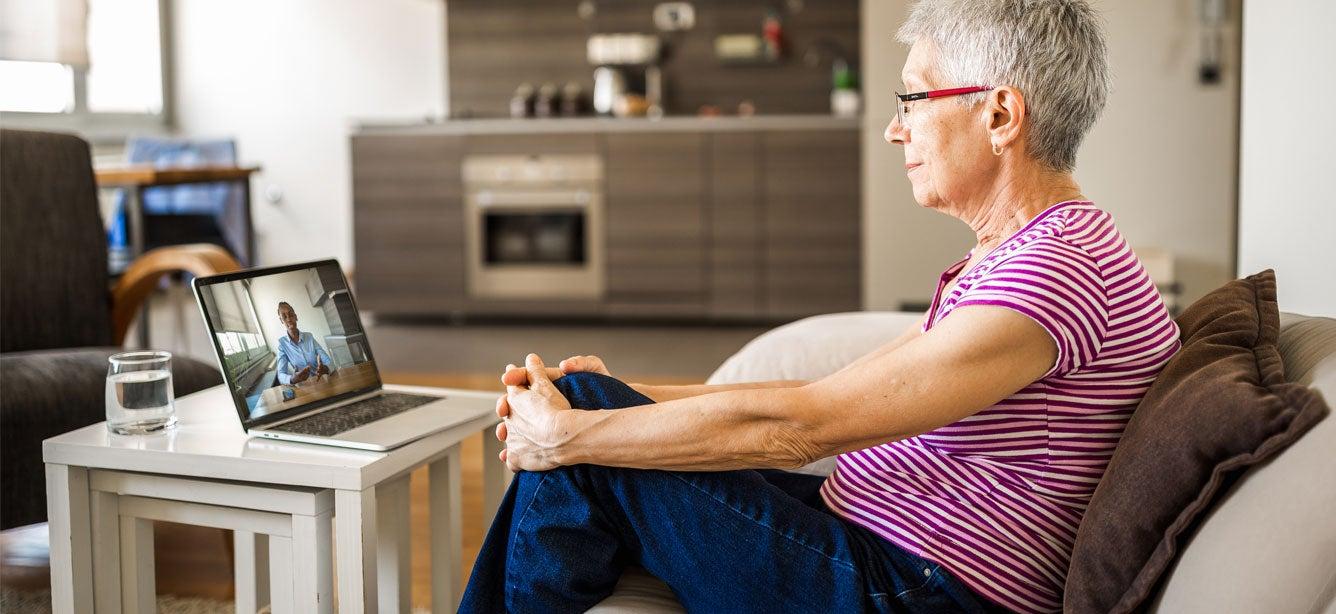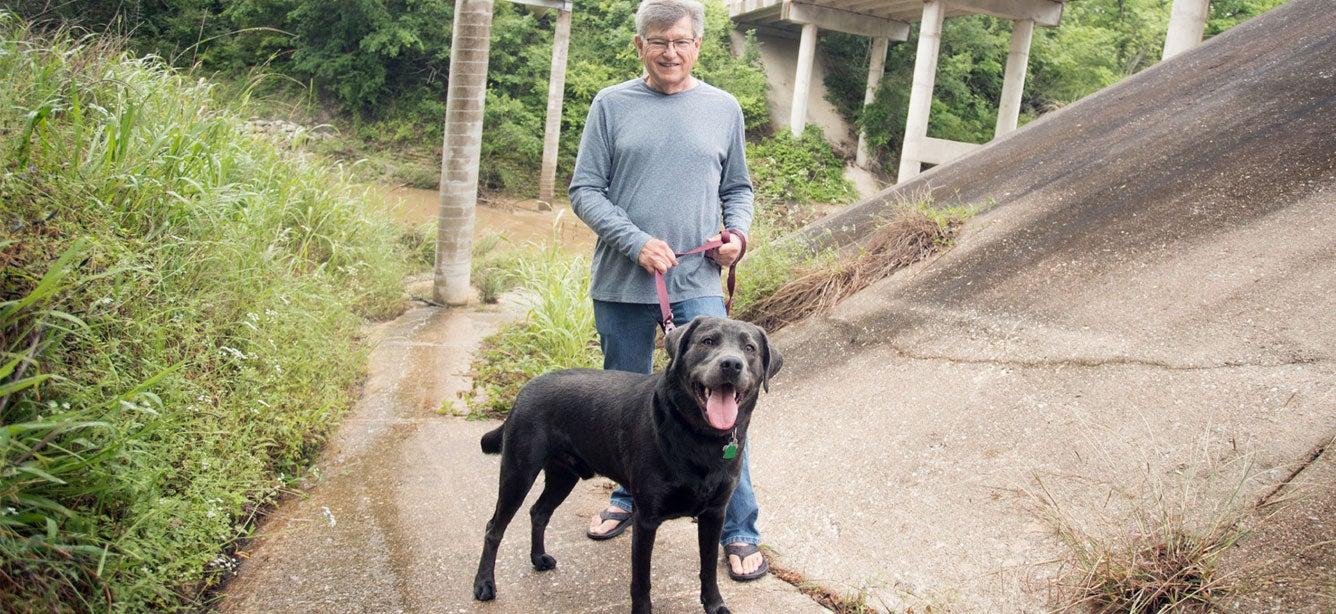
Related Topics
Today in the United States, having access to the physical and mental health care services you need largely depends on where you live. And for the millions of Americans who live in rural areas of the country, the negative effects on their overall wellness are noticeable.
“Living in a non-urban area means that your overall health is likely to be worse than if you lived near the city,” explained Kathleen Cameron, former senior director of NCOA’s Center for Healthy Aging. “This is true no matter your age, and it becomes even truer as you age.”
So, what does that mean for the health of older adults living in rural adult areas?
What are the health challenges for rural older adults?
The Centers for Disease Control and Prevention paints a clear picture. When compared to their urban counterparts, rural Americans are:
- More likely to live in poverty and less likely to have health insurance.1
- More likely to smoke, have high blood pressure, and be obese.1
- Less likely to be physically active in their leisure time or use seatbelts.1
Because these same Americans also live much further away from specialty and emergency health care providers, they are more likely to die of heart disease, stroke, cancer, chronic lung disease, and unintentional injuries, such as falls or motor vehicle accidents.2
And it’s not just their physical health that suffers. The Rural Health Information Hub reports that nearly 8.5 million rural Americans live with some form of mental health condition. Further, 90 million U.S. residents live in a Mental Health Professional Shortage Area (MHPSA); the vast majority of these residents are rural.3
What are the common mental health concerns among seniors?
Rural or not, older adults experience many of the same stressors that younger people do. They also face a host of situations that accompany aging, including emotional challenges related to:
- Bereavement
- Caregiving stress
- Chronic illness
- Loneliness
- Functional limitations and inability to do necessary and enjoyable everday activities
- Financial worries
Partially for these reasons, as many as 20% of adults age 55 and older experience some form of mental health concern, according to the CDC.4 This includes anxiety and mood disorders, such as depression and bipolar disorder, post-traumatic stress disorder or PTSD, and substance use problems, such as alcoholism.
The good news is that the percentage of older adults with depression, specifically, is actually pretty low: between 1% and 5% among those living in the general community.
“But that doesn’t mean that other emotional struggles are any less real or valid,” Cameron asserted. “As we age, each of us faces a number of life changes and circumstances—such as the death of a loved one—that can cause anxiety, sadness, stress, or all three. And there’s no reason to navigate those without help.”
Further, as Cameron pointed out, physical and mental health are directly related—so it stands to reason that when the first isn’t optimal, neither is the second.
Ways to help rural older adults improve their mental health
There are many proactive steps older adults can take, no matter where they live. Some of these include:
- Eating healthy
- Being physically active
- Reducing stress
- Staying socially connected
- Sleeping 7 to 9 hours each night
- Trying online therapy/li>
How older adults can access mental health services in rural areas
As to that last bullet point: Online therapy emerged widely during the pandemic shutdown, when the need was acute, but access limited. Virtual counseling allows clients to interact with their therapist over a secure connection using a computer, tablet, smartphone, or other internet-enabled device.
Due to its popularity in the time since, telehealth therapy seems destined to stay—which is great news for rural older adults, Cameron explained.
Being able to talk to a licensed therapist from wherever you live reduces barriers to treatment, especially for people who are limited by distance, lack of transportation, provider shortages, and other obstacles that are more common in rural areas than urban ones.”
The bottom line
Rural America is aging—and growing numbers of these older adults will face some sort of mental health challenge in the years ahead. Online mental health counseling services can offer a reliable alternative to in-person therapy for rural older adults who face unique barriers to care, including long-distance travel, provider shortages, and isolation. When choosing which online therapy platform to use, consider its costs (including insurance coverage), payment method(s), financial assistance opportunities, and third-party reviews.
Of course, virtual therapy may not be for everyone. Many areas provide community-based behavioral health programs for older adults, too.
Also, said Cameron, "a form of Medicare integrated care that combines primary care and mental health services is growing across the U.S. Ask your doctor if it is available in your area."
More good news is that beginning in January 2024, more mental health professionals, such as marriage and family therapists and mental health counselors, will be allowed to bill Medicare for therapy services. That hopefully will address the shortage of mental health providers in rural communities and those available online to treat older adults on Medicare.
Sources
1. Centers for Disease Control and Prevention. About Rural Health. Updated May 9, 2023. Found on the internet at https://www.cdc.gov/ruralhealth/about.html
2. James C. Davis, et. al. Rural America at a Glance: 2022 Edition. U.S. Department of Agriculture Economic Research Service, Economic Information Bulletin Number 246, November 2022. Found on the internet at https://www.ers.usda.gov/webdocs/publications/105155/eib-246.pdf?v=7840.1
3. Rural Health Information Hub. Defining Mental Health in Rural Communities. Found on the internet at https://www.ruralhealthinfo.org/toolkits/mental-health/1/definition
4. Centers for Disease Control and Prevention and National Association of Chronic Disease Directors. The State of Mental Health and Aging in America Issue Brief 1: What Do the Data Tell Us? 2008. Found on the internet at https://www.cdc.gov/aging/pdf/mental_health.pdf



